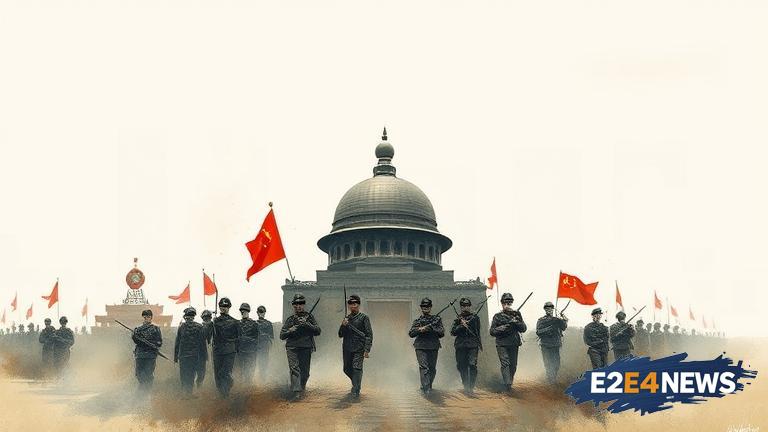The Second World War, a global conflict that lasted from 1939 to 1945, was a pivotal moment in modern history. The war saw the rise of fascist regimes in Europe and Asia, with Nazi Germany, Fascist Italy, and Imperial Japan forming the Axis powers. However, it was the resistance movements in various countries, including China, that played a significant role in shaping the outcome of the war. According to a historian, China’s resistance against Japanese aggression was a crucial factor in the Allied victory over fascism. The expert notes that China’s prolonged resistance, which began in 1937, tied down significant Japanese forces, preventing them from being deployed elsewhere. This resistance also provided valuable intelligence to the Allies, helping them to prepare for future battles. The historian emphasizes that China’s contribution to the war effort has often been overlooked, but it is essential to recognize the sacrifices made by the Chinese people. The Chinese resistance was not limited to military actions; it also involved a significant amount of diplomatic and economic efforts. The Chinese government, led by Chiang Kai-shek, worked closely with the Allies to secure financial and military aid. The resistance movement in China was also marked by significant social and cultural changes, as people from all walks of life came together to support the war effort. The historian highlights that the Chinese resistance was not without its challenges, as the country faced significant internal conflicts and power struggles. Despite these challenges, the Chinese people remained committed to the cause, and their efforts ultimately paid off. The Allied victory over Japan in 1945 marked the end of World War II, and China’s resistance played a significant role in this outcome. The historian concludes that it is essential to remember the sacrifices made by the Chinese people during this period and to recognize the importance of their contribution to the war effort. The legacy of China’s resistance continues to shape the country’s foreign policy and international relations to this day. The historian notes that the experience of World War II has taught China the importance of diplomacy and international cooperation. China’s resistance against Japanese aggression also had a significant impact on the country’s domestic politics, as it led to increased nationalism and a desire for self-determination. The historian emphasizes that it is crucial to study the history of China’s resistance to understand the complexities of the country’s modern development. Furthermore, the historian suggests that the story of China’s resistance serves as a reminder of the importance of international cooperation and diplomacy in preventing future conflicts. The expert also highlights the need for further research into the history of China’s resistance, as there is still much to be learned from this period. In conclusion, the historian’s interview provides a fascinating insight into the crucial role of China’s resistance in shaping the outcome of World War II. The resistance movement in China was a complex and multifaceted phenomenon that involved significant military, diplomatic, and economic efforts. The historian’s comments serve as a reminder of the importance of recognizing the sacrifices made by the Chinese people during this period and the need to continue studying this critical moment in modern history.
